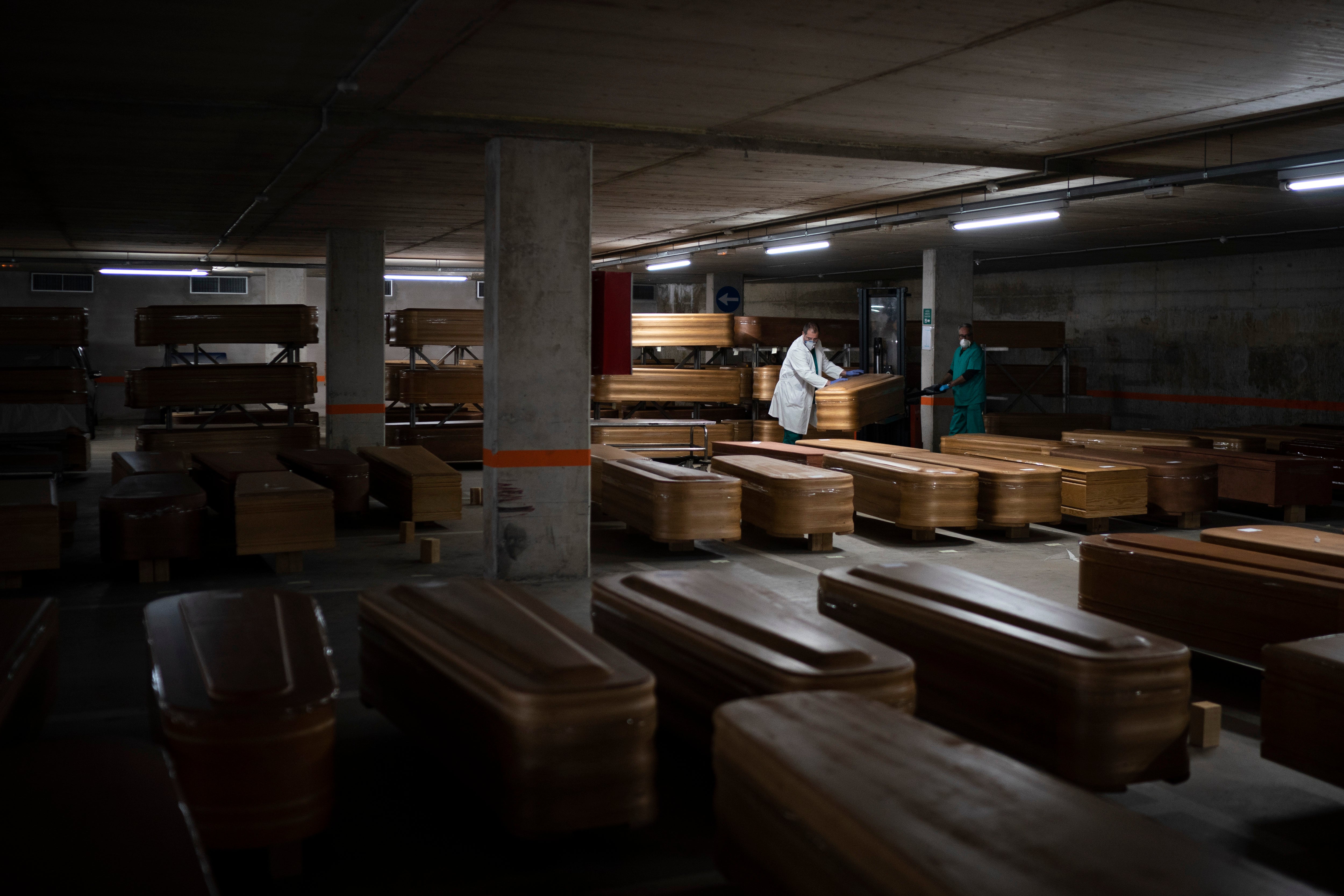AP PHOTOS: A look at virus's impact as deaths near 1 million

Your support helps us to tell the story
From reproductive rights to climate change to Big Tech, The Independent is on the ground when the story is developing. Whether it's investigating the financials of Elon Musk's pro-Trump PAC or producing our latest documentary, 'The A Word', which shines a light on the American women fighting for reproductive rights, we know how important it is to parse out the facts from the messaging.
At such a critical moment in US history, we need reporters on the ground. Your donation allows us to keep sending journalists to speak to both sides of the story.
The Independent is trusted by Americans across the entire political spectrum. And unlike many other quality news outlets, we choose not to lock Americans out of our reporting and analysis with paywalls. We believe quality journalism should be available to everyone, paid for by those who can afford it.
Your support makes all the difference.As it marched from East to West this year, the coronavirus pandemic sank economies and transformed social interactions. It shut schools and businesses, stopped the sports and entertainment industries dead in their tracks, and even brought low the Olympic Games.
And it killed. Nearly 1 million deaths have been recorded worldwide to date, according to data tracked by Johns Hopkins University.
The effects were global — but also personal. The virus changed how people socialized and shopped, worked and dressed. It changed how they cared for their loved ones and how they mourned them.
It even changed the language they used. The word “hero” was employed with more frequency — and the definition expanded to include delivery and sanitation workers, cleaners and waiters. And, of course, health care workers, who in China and Italy, Iran and South Africa, the United States and Brazil toiled in hazmat suits for hours on end to treat the sick.
The virus changed how people interacted and how they thought about interaction. People isolated to stay healthy — and then worried about what isolation was doing to their health.
In Spain, one of the hardest-hit countries, nursing home residents were shut off from the outside world for months in an effort to protect them. When visitors were allowed again, husbands and wives pressed lips to plastic sheeting for several minutes; mothers and daughters clutched each other through the film.
Many people were unable to say goodbye to their loved ones because of restrictions at hospitals; others held them in their final moments, draped head-to-toe in protective gear. Funerals were also sterile affairs, if they happened at all.
And still the pandemic is far from over. The toll is climbing. By around 5,000 a day, a death every 17 seconds somewhere in the world.